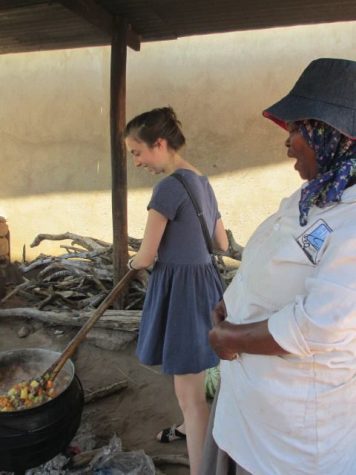MADRID: A lesson in stereotypes
In my “Current International Issues from a Spanish Perspective” class, we’ve been discussing Spanish stereotypes and stereotypes of other cultures around the world.
The first thing that my classmates brought up about Spain is that the people here are all bull-fighting, flamenco-dancing, long siesta takers.
The Spanish are presumed to be lazy, when most actually work until 8 or 9 p.m. With the country at a 26 percent unemployment rate, I think the Spanish work very hard under the current circumstances.
Another stereotype that surfaced in class discussion was how the Spanish can be mistaken for being rude and politically incorrect. Our advisor brought this up during orientation and said that the Spanish are simply very direct and don’t tiptoe around the facts.
It can be confusing coming into a country when your only knowledge about the country and the people comes from stereotypes. It can be shocking at times, like when I thought my counselor was horribly rude for telling me my Spanish wasn’t very good. She was simply telling me the truth.
We also looked the other way: at stereotypes of Americans. Some people described Americans as being too nice to a point of being fake. They also think we are nationalistic, loud and annoying.
A lot of people also think the U.S. is a pretty dangerous place with everyone carrying guns. I have been asked more than once if I own a gun. When they hear I go to school in Texas, people just assume I do. But who can blame them when they see so much of the media in the U.S. covering guns.
Like many stereotypes, these can be applied to a handful of people, but shouldn’t represent a whole community. So, personally, I’m trying to show that the U.S. includes nice and sincere people who aren’t too loud or annoying.
Sometimes it’s hard not to fall back on using an image of a culture especially when it’s already been established in our minds.
Spain is much more than its stereotypes. It is a country that has been home to three major religions, has faced a civil war and has endured an authoritarian government. The cultures and traditions of the people change from one side of the country to the other. One region of the country even feels so different from Spain that it’s considering declaring independence.
Stereotypes tend to oversimplify an identity that is more complicated. A nationality may influence individuals but it does not necessarily define them.
We have a few strong-minded individuals in my apartment, so we occasionally (and lately it’s been regularly) have heated debates over how our respective countries are viewed. It’s really been eye-opening and if anything, a practice in patience and tolerance.






